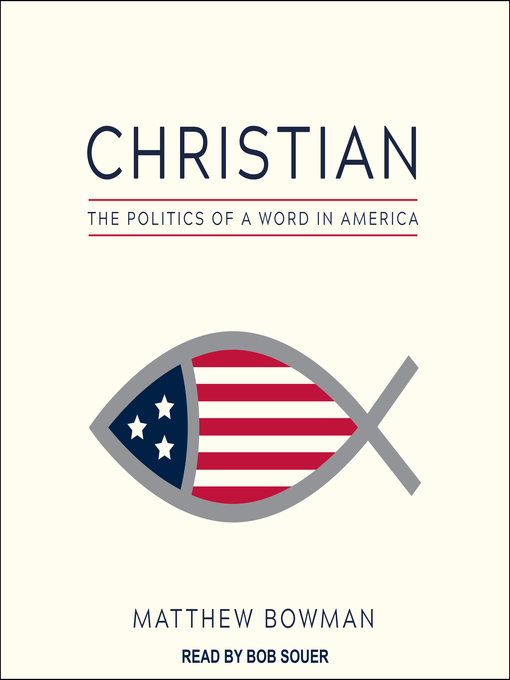The varieties of American Christian experience speak to an essentially contested concept of political rights and wrongs. Though diverse Christian faiths espouse political visions, Christian politics defy clear definition, Matthew Bowman writes. Rather, they can be seen as a rich and varied collection of beliefs about the interrelationships of divinity, human nature, and civic life that engage and divide the nation's Christian communities and politics alike.
-
Creators
-
Publisher
-
Release date
April 1, 2018 -
Formats
-
OverDrive Listen audiobook
- ISBN: 9781977326829
- File size: 279231 KB
- Duration: 09:41:43
-
-
Languages
- English
-
Reviews
-
Publisher's Weekly
Starred review from February 26, 2018
Bowman (The Urban Pulpit), associate professor of history at Henderson State University, pulls together a thought-provoking series of case studies that charts the long history of Christian political rhetoric in the United States. He is particularly interested in how “Americans have used the language of Christianity to assert the transcendent authority of their democracy against threats they labeled materialistic” during the 20th century, beginning with a chapter on Spiritualist radical Victoria Woodhull’s 1872 presidential campaign and ending with one on the fracturing of the late-20th-century religious right. In between, Bowman considers such diverse case studies as the development and contestation of a Western civilization curriculum at Columbia and Howard Universities, Catholic citizenship and activism during the Great Depression, and black activists’ use of Christianity to combat white supremacy in a global context. Most striking for our current political moment may be Bowman’s attention to the ways the politically powerful have used Christianity to claim a divine right to govern, derived—as they saw it—from the superiority of a racialized white Christian cultural heritage. Bowman, in this rigorous study, persuasively argues that Christianity has shaped a collective understanding of the national past and continues to lend spiritual weight to competing visions for America’s future.
-
Loading
Why is availability limited?
×Availability can change throughout the month based on the library's budget. You can still place a hold on the title, and your hold will be automatically filled as soon as the title is available again.
The Kindle Book format for this title is not supported on:
×Read-along ebook
×The OverDrive Read format of this ebook has professional narration that plays while you read in your browser. Learn more here.

